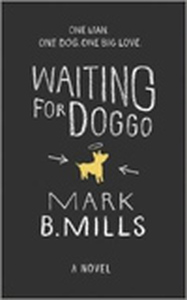
In my review of The Long Shadow, I said I’d be interested to see where Mark Mills would take his imagination next. I was hoping for darker, but what he’s done is slipped an extra initial (which I failed to notice originally) between his first and second names and moved sideways into another brand. This is lighter, nice-bloke-lit, Nick Hornby without the subtle humour and emotional depth.
But what a title! It could have been dreamt up by Dan and his Indology colleagues, causing me to wonder if the title preceded the characters and plot. I’m willing to be corrected, but I’m not convinced it does this novel any favours to evoke what’s been termed the most significant English-language play of the 20th-century in the reader’s mind. Beckettesque it most certainly is not.
Covers that don’t fit the story is a topic often raised by book bloggers, but what about titles? We often come across titles of which the significance isn’t clear until towards the end of the story (for example If I Knew You Were Going to Be This Beautiful I Never Would Have Let You Go), but Waiting for Doggo is unique in sending my mind off on the totally wrong path. Can you think of any other novels where the title has implied a different story to the one you read?
While I love the title of my own forthcoming novel, Sugar and Snails, and would be loath to change it, I don’t want readers to get the wrong impression of what it’s about. I’ve generally had positive feedback, with two exceptions I can think of: one who thought it too childish; another for whom sugar spelt cloyingly-sweet chiclit. So I’d be really interested to know what the title means to you.
Thanks to Headline Review for my Bookbridgr proof copy of Waiting for Doggo. Although there’s a fair amount of Twitter excitement about this novel, I’ll be going for Mark Mills without the middle initial if there’s ever a next time. For more on finding an attention-grabbing title, check out this post from Roz Morris.





















 RSS Feed
RSS Feed





















